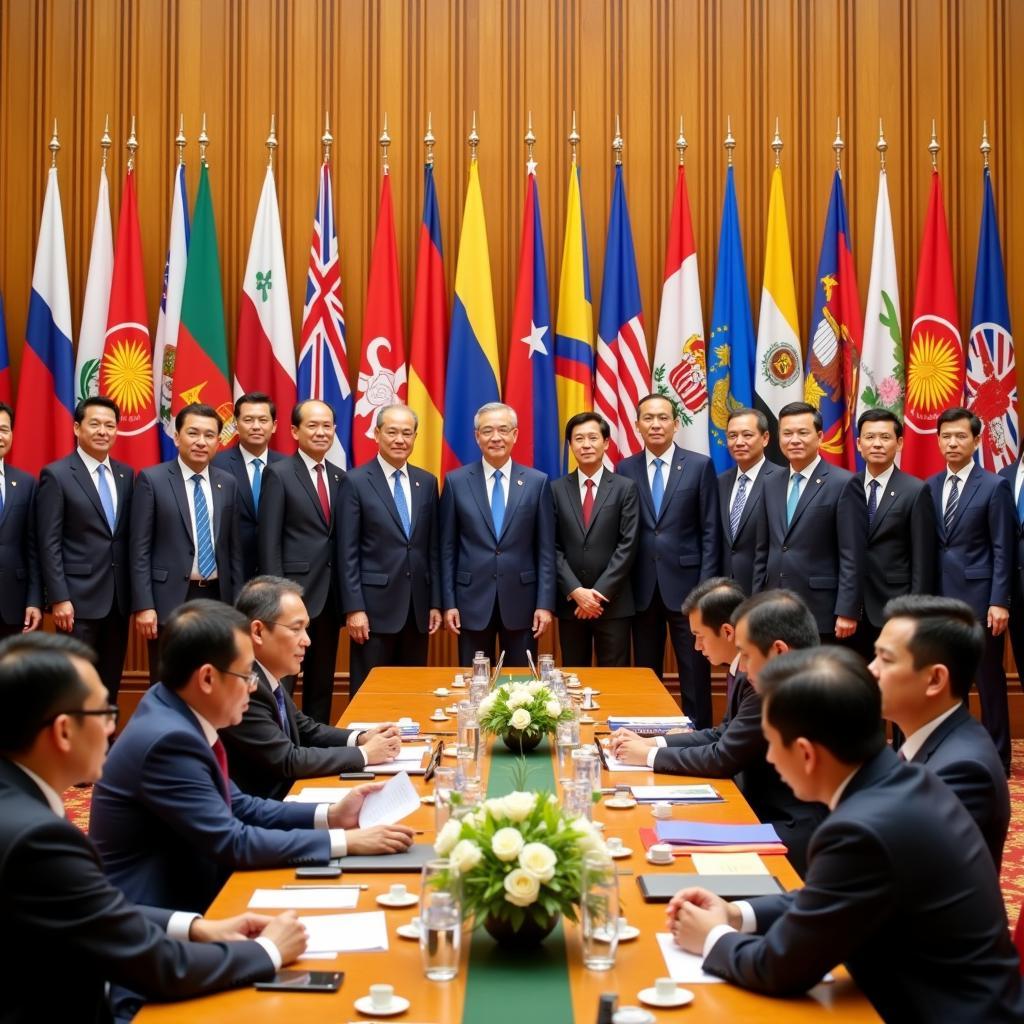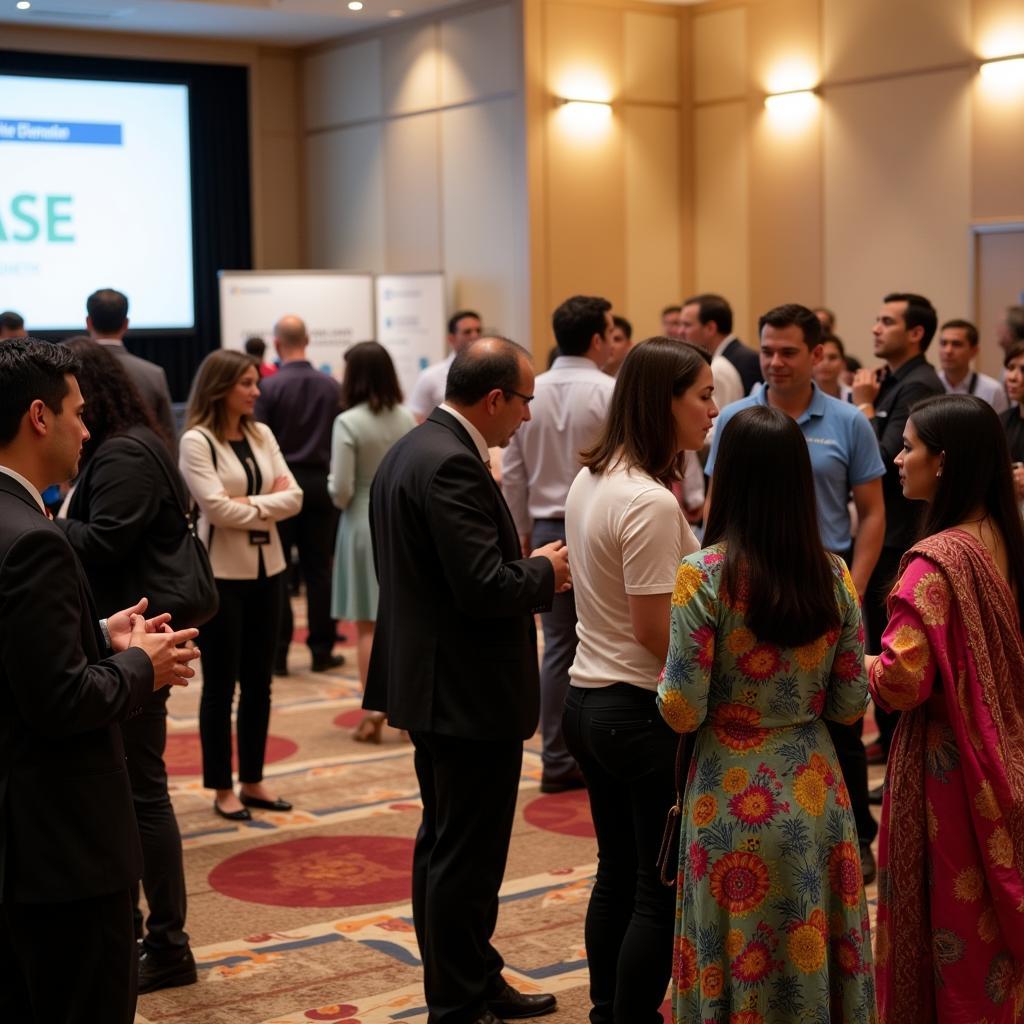Amitav Acharya’s work on the “ASEAN Way” offers crucial insights into the unique dynamics of Southeast Asian international relations. This article explores Acharya’s perspective, examining its core principles, strengths, limitations, and relevance in the evolving geopolitical landscape.
Decoding the “ASEAN Way” with Amitav Acharya
Amitav Acharya’s scholarship has significantly shaped our understanding of the “ASEAN Way.” He argues that this approach is characterized by informal, consensus-based diplomacy, non-interference in internal affairs, and a preference for quiet diplomacy over public confrontation. This approach, he suggests, reflects the region’s diverse political systems, cultural norms, and historical experiences.
Key Principles of the “ASEAN Way”
Acharya highlights several key tenets of the “ASEAN Way.” These include:
- Musyawarah and Mufakat (Consultation and Consensus): Decision-making is based on deliberation and finding common ground, avoiding voting or imposing the will of the majority.
- Non-Interference: Member states refrain from intervening in the domestic affairs of other members, respecting national sovereignty.
- Quiet Diplomacy: Disputes are addressed discreetly through informal channels, prioritizing amicable solutions and avoiding public criticism.
These principles, according to Acharya, have allowed ASEAN to manage complex regional issues and maintain stability despite the diversity of its member states.
Strengths and Limitations of the “ASEAN Way”
While the “ASEAN Way” has contributed to regional peace and cooperation, Acharya acknowledges its limitations. The emphasis on consensus can lead to slow decision-making and ineffective responses to pressing challenges. The principle of non-interference, while safeguarding sovereignty, can also hinder action on issues with regional implications, such as human rights abuses.
Evolving Geopolitics and the Future of the “ASEAN Way”
In a rapidly changing world, the “ASEAN Way” faces new challenges. The rise of great power competition, increasing economic interdependence, and transnational issues like climate change demand more proactive and decisive regional responses. Acharya argues that while the core principles of the “ASEAN Way” remain relevant, ASEAN needs to adapt and evolve to effectively address these emerging challenges.
Amitav Acharya: A Leading Voice on ASEAN
Professor Amitav Acharya, renowned for his expertise on ASEAN, has extensively researched and written about the “ASEAN Way.” His work provides invaluable insights for understanding the organization’s dynamics and its role in regional and global affairs. He argues that the “ASEAN Way” is not a static concept but a dynamic process that continues to adapt to changing circumstances.
“The ASEAN Way is not a set of rigid rules but a flexible framework that allows for pragmatic adjustments in response to evolving realities,” notes Professor Amitav Acharya.
“While consensus-building is central to the ASEAN Way, it should not come at the expense of effective action on critical issues,” adds Acharya.
 ASEAN leaders gathering at a summit, representing the ASEAN Way
ASEAN leaders gathering at a summit, representing the ASEAN Way
Conclusion: The “ASEAN Way” in a Changing World
The “ASEAN Way,” as articulated by Amitav Acharya, offers a valuable framework for understanding the unique dynamics of Southeast Asian regionalism. While its strengths lie in fostering dialogue and cooperation, its limitations need to be addressed to ensure ASEAN’s continued relevance in a rapidly changing world. Adapting to new geopolitical realities while upholding its core principles remains a key challenge for ASEAN in the years to come.
FAQs about the ASEAN Way
- What is the core principle of the ASEAN Way?
- How does the ASEAN Way contribute to regional stability?
- What are the limitations of the ASEAN Way?
- How is the ASEAN Way adapting to new challenges?
- What is Amitav Acharya’s perspective on the ASEAN Way?
- How does the ASEAN Way influence decision-making processes?
- What is the future of the ASEAN Way in the evolving geopolitical landscape?
Do you have more questions? Here are some other articles you might find helpful: apa itu asean scholarship.
Need further assistance? Contact us at Phone: 0369020373, Email: aseanmediadirectory@gmail.com or visit our office at Ngoc Lien Village, Hiep Hoa, Bac Giang, Vietnam. Our customer service team is available 24/7.
